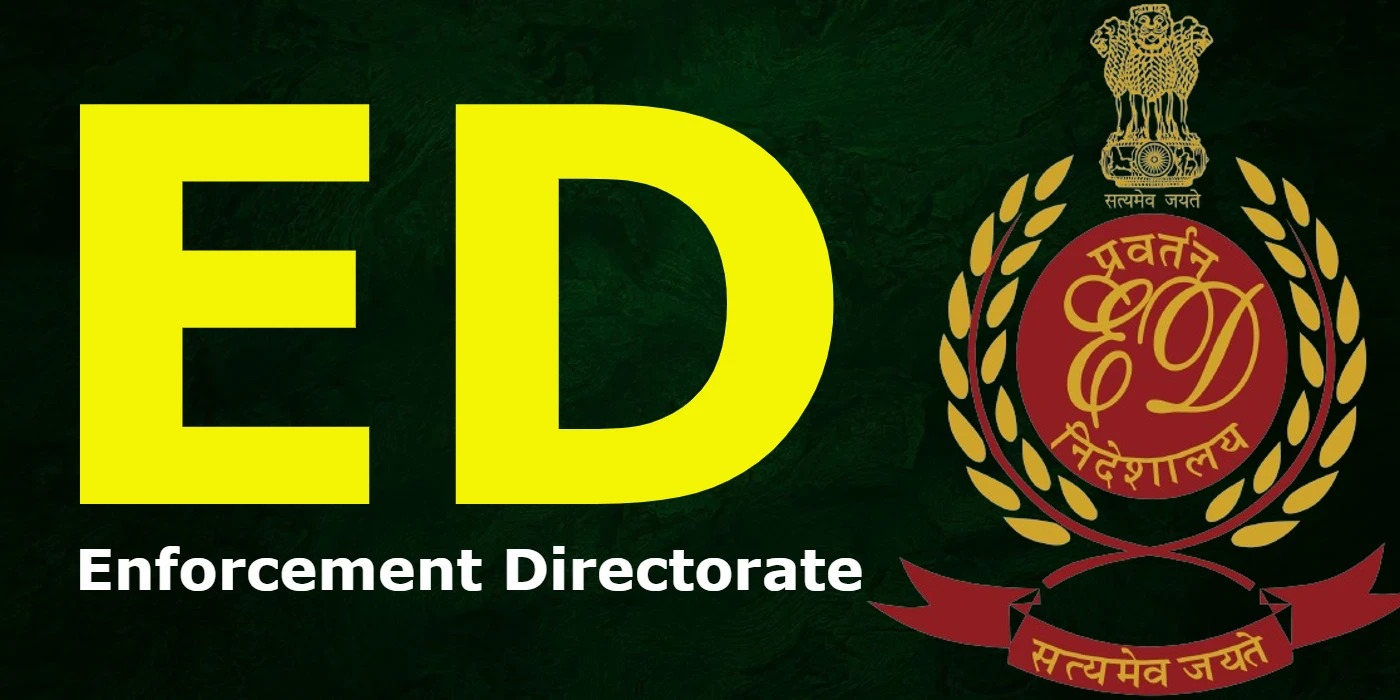L. Narasimha Reddy, J.@mdashThese two appeals are interrelated. The respective appellants are brothers. They are assessees under the Income Tax Act, 1961 (for short the Act). They jointly constructed a godown near Suryapalem Village of Vijayawada between 1991 and 1992. In the returns filed by the appellants for the corresponding years, the cost of construction that fell to their share was shown as Rs. 25,50,853/- each. It is stated that a report of valuer was enclosed to the returns. The assessing officer accepted the facts and figures and completed the assessment.
2. On 14-03-1996, the Income Tax Department issued notices to the appellants stating that the Superintending Engineer, Valuation Cell found that the cost of the construction was around Rs. 84,76,000/- and required them to show cause as to why the difference between the cost of construction admitted in the assessment and the value determined by the Superintendent be not treated as unexplained investment u/s 69B of the Act. Reply was filed by the appellants on 20-04-1996 taking an objection to the very attempt to reopen the assessment. Not satisfied with that, the assessing officer required the appellants to file returns for the assessment year 1992-93 and on filing such returns, orders were passed on 20-03-1998 u/s 143(3) read with Section 147 of the Act making an addition of Rs. 7,02,760/- each to the income of the appellants. The appellants filed appeals before the Commissioner (Appeals), Range IV, Hyderabad aggrieved by the orders of re-assessment. The appeals were partly allowed through a common order dated 28-05-1999 reducing the figures on the orders of re-assessment to Rs. 3,32,420/- to each of the appellants. In the meanwhile, orders of rectification u/s 154 of the Act were passed by the assessing officer by adding a sum of Rs. 78,085/- each disallowing the depreciation of 10%.
3. The appellants filed further appeals before the Income Tax Appellate Tribunal, Visakhapatnam (for short, the Tribunal) being ITA Nos. 178/v/1999 and 180/v/1999. Through orders dated 15-02-2001, the Tribunal partly allowed the appeals by reducing the cost by 10% towards supervisory charges. However, the appellants were not satisfied with that and they filed Miscellaneous Petition Nos. 21/v/2001 and 22/v/2001 in the respective appeals u/s 254(2) of the Act. Through common order dated 15-07-2002, the Tribunal rejected the miscellaneous petitions. Hence, these two appeals u/s 260A of the Act.
4. Sri Challa Gunaranjan, learned counsel for the appellants submits that there was a clear error apparent on the face of the record and the Tribunal ought to have exercised its jurisdiction u/s 254(2) of the Act. According to the learned counsel, the very reopening of the assessments were without any basis since the respondent failed even to mention as to what constituted the reason to believe u/s 147 of the Act. He contends that the ratio laid down by various Courts in this behalf was not taken note of by the Tribunal and even after its attention is invited to the same, the Tribunal did not rectify its orders.
5. Sri J.V. Prasad, learned counsel for the respondent, on the other hand, submits that the very fact that the assessments were reopened on the basis of the valuation of the cost of the building discloses that there existed adequate basis and that all the authorities under the Act were convinced as to the existence of basis for reopening. He submits that once the Tribunal has passed orders in the appeals preferred by the appellants, there was no basis for filing the miscellaneous petitions. He submits that the jurisdiction u/s 254(2) can be exercised if only the error is so apparent and patent that it can be discerned without any effort and can be established without taking the help of any external material, and such an error did not exist in the instance case, at all. He contends that even if there is a possibility of different views being taken on the same facts, it cannot constitute the basis for passing an order of rectification and thereby exercising the power of appeal by the Tribunal on its own orders. He placed reliance on certain precedents.
6. The factual background, in brief, for filing of miscellaneous petitions by the appellants herein has been mentioned in the preceding paragraphs. The orders of assessment, insofar as they relate to the cost of construction of a godown have been reopened in exercise of power u/s 148 of the Act. The appellants suffered orders of reassessment in the hands of the assessing authority and accordingly carried the matter to the appellate Commissioner. It is no doubt true that the ground of the absence of factual basis for reopening the assessment was urged. All the same, that ground did not weigh with the appellate Commissioner. The reason appears to be that the reopening was on the basis of the valuation of the godown by the Superintending Engineer. Accordingly, notices were issued to the appellants duly pointing out the same.
7. Section 148 of the Act has been interpreted by the Courts in such a way as to keep the power of the assessing authority intact, as long as there existed some basis. If the basis as such exists, the exercise thereof becomes non-justiciable. It is only when there is a total absence of any reason or basis whatever, that an attempt to invoke power u/s 148 can be found fault. Adequacy of the material that was available with the assessing officer cannot be subject matter of the adjudication.
8. The appellants were granted partial relief by the Commissioner (Appeals) by virtually slashing the added amount, to half. In the further appeals before the Tribunal, relief in the form of reduction of cost by 10% towards personal maintenance charges was granted. In case, the appellants were not satisfied with the nature of disposal given by the Tribunal, it was open to them to avail the further remedies.
9. Section 254(2) confers power upon the Tribunal, which is comparable or akin, to the one of review. It is only in limited circumstances that a power of that nature can be exercised. The provision reads:
254(2) The Appellate Tribunal may, at any time within four years from the date of the order, with a view to rectifying any mistake apparent from the record, amend any order passed by it under subsection (1), and shall make such amendment if the mistake is brought to its notice by the assessee or the Assessing Officer:
Provided that an amendment which has the effect of enhancing an assessment or reducing a refund or otherwise increasing the liability of the assessee, shall not be made under this sub-section unless the Appellate Tribunal has given notice to the assessee of its intention to do so and has allowed the assessee a reasonable opportunity of being heard: Provided further that any application filed by the assessee in this sub-section on or after the 1st day of October, 1988, shall be accompanied by a fee of fifty rupees.
10. From a perusal of it, it becomes clear that the power can be exercised to rectify only a mistake which has occurred in the record and not for other purposes.
11. The expression error apparent on the face of the record occurs even in administrative adjudications. An error can be treated as the one apparent on the face of the record, if only it can be discerned just on perusal of the connected record, without the aid of any external material. To put it conversely, if the error can be demonstrated only by taking recourse to the other material or arguments, it ceases to be the one, apparent from record. In Assistant Commissioner of Income Tax v. Saurashtra Kutch Stock Exchange Ltd., the Supreme Court observed:
In our judgment, therefore, a patent, manifest and self-evident error which does not require elaborate discussion of evidence or argument to establish it, can be said to be an error apparent on the face of the record and can be corrected while exercising certiorari jurisdiction. An error cannot be said to be apparent on the face of the record if one has to travel beyond the record to see whether the judgment is correct or not. An error apparent on the face of the record means an error which strikes on mere looking and does not need a long drawn out process of reasoning on points where there may conceivably be two opinions. Such error should not require any extraneous matter to show its incorrectness. To put it differently, it should be so manifest and clear that no Court would permit it to remain on record. If the view accepted by the court in the original judgment is one of the possible views, the case cannot be said to be covered by an error apparent on the face of the record.
12. Similarly, in Commissioner of Income Tax v. Earnest Exports Ltd., the Bombay High Court explained the scope of Section 254(2) of the Act as under:
section 254(2) empowers the Tribunal to rectify a mistake apparent from the record and for that purpose to amend any order passed by it. The Supreme Court has held in its judgment in
13. The precedents can be multiplied on this issue.
14. Reverting to the facts of the case, the appellants are not able to point out as to what exactly the error in the orders passed by the Tribunal in the appeals, which is apparent from the record. The thrust of their argument is that the Tribunal did not address the question pertaining to the very basis for reopening the assessment. It is too well known that the Court or a Tribunal is deemed to have taken every aspect that is placed before it, into account and granted the relief which it felt appropriate and gave a disposal to the matter before it, in a manner which it felt appropriate. It is not necessary that every aspect must be addressed in greater detail. This is particularly so with the appellate fora. If on any aspect, the appellate forum is silent, it can be deemed to have concurred with the view expressed by the forum from which the order under appeal has arisen. At any rate, we do not find any basis to interfere with the orders under appeals.
15. The appeals fail and they are accordingly dismissed. The miscellaneous petitions pending in these appeals shall also stand disposed of. There shall be no order as to costs.

